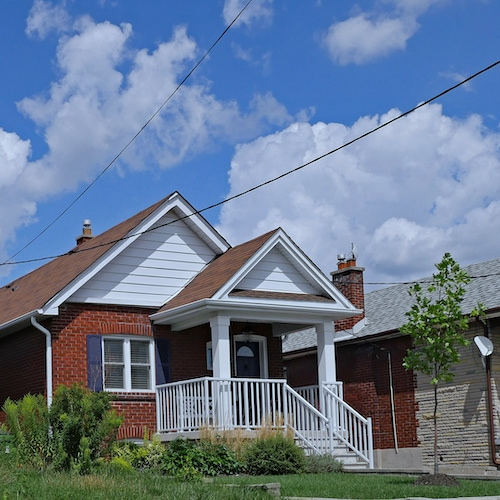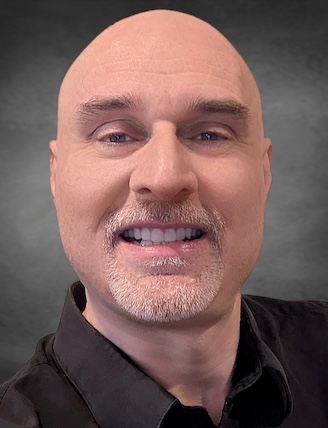How to get a VA loan after bankruptcy
Contributed by Tom McLean
Dec 15, 2025
•7-minute read

Filing for bankruptcy has a significant and often long-term effect on your ability to borrow money. Recovering from a bankruptcy often requires years of working to responsibly rebuild your credit and financial track record. If you serve or have served in the military, a VA loan can give you that second chance and help you buy a home more easily after a bankruptcy than most other types of mortgages.1 Getting approved for a VA loan will depend on the type of bankruptcy you filed, why you filed, and other requirements.
Can you get a VA home loan after bankruptcy?
Yes, it’s possible to use a VA loan to buy a house after bankruptcy.
“Bankruptcy does not permanently stop you from getting a VA loan. But it does mean you will have to wait and meet certain conditions,” says Dennis Shirshikov, a professor of finance and economics with City University of New York/Queens College. “The VA loan program is set up to help qualified borrowers get their finances back on track, as long as they show that they are recovering and using credit responsibly.”
In certain circumstances, after bankruptcy, VA home loans can be easier to qualify for than FHA loans or conventional loans. Active or retired military service members and their surviving spouses may qualify for a VA mortgage after bankruptcy, but eligibility will depend on:
- The type of bankruptcy you filed
- The reason you filed for bankruptcy
- Your ability to meet VA eligibility requirements
A lender that offers VA loans can help you better understand what you need to qualify for one.
Does the VA help with bankruptcies?
The VA can’t directly help a veteran who's facing or filed for bankruptcy, but it does offer qualified flexible loan requirements and access to VA loans after bankruptcy.
“VA home loans often allow for flexible underwriting – even after bankruptcy – but the timing and requirements vary depending on the bankruptcy type,” says Andy Kolodgie, a personal finance expert and real estate investor based in Austin, Texas. “Many assume you must wait the full standard period and have spotless credit. But VA lenders sometimes consider individual circumstances, your payment history post-bankruptcy, and evidence of financial rehabilitation beyond typical credit scores.”
The VA loan bankruptcy waiting period, explained
If you have filed for bankruptcy, you may be subject to a waiting period before you can qualify for a VA loan. The biggest difference between a Chapter 7 and Chapter 13 filing is what happens to your assets and property when you file, and how long you must wait afterward to apply for a mortgage loan.
If you filed for Chapter 7 bankruptcy
With a Chapter 7 bankruptcy, you are allowed to sell your property to pay off your debts. Once the sale of your assets is final, your remaining debts are discharged, allowing you to start over with a clean financial slate.
However, Chapter 7 comes with several drawbacks that affect your ability to qualify for and afford a VA loan, including:
- You won’t be allowed to keep property like your home, your car, and even some household items.
- You won’t be permitted to catch up on missed payments to settle debts with lenders and creditors.
- You’ll need to wait up to 2 years from the date of your bankruptcy discharge before applying for a VA loan.
If you filed for Chapter 13 bankruptcy
Chapter 13 is known as reorganization bankruptcy because it allows you to work out a repayment plan to keep your property. Your bankruptcy attorney will work with the court on a debt repayment plan typically lasting 3 to 5 years. Once your debt repayment plan is complete, any remaining debts will be discharged.
If you don’t meet Chapter 7 eligibility requirements and can pay some of your debts, Chapter 13 is often a better option. You’re able to retain your property, and the bankruptcy falls off your credit report after 7 years.
But filing Chapter 13 bankruptcy has a few downsides that affect your ability to get and afford a mortgage, including:
- It will be more difficult to qualify for new loans – including VA loan programs – than if you hadn’t filed.
- You’ll need to make on-time payments for at least 12 months before you can qualify for a VA loan.
- It will be challenging to save money each month. That’s because you’ll have to use your income to pay for your necessities and any debt payments you’re required to make.
- You’ll have to make payments until your debts are paid in full.
If you experienced a foreclosure
Foreclosure isn’t a type of bankruptcy. But since homes are foreclosed on due to nonpayment, foreclosure can go hand in hand with filing bankruptcy.
A bankruptcy followed by a foreclosure – most common in a Chapter 7 filing – doesn’t disqualify you from applying for a VA loan. But a bit more paperwork is involved if a foreclosure was a part of your bankruptcy proceeding. You’ll need to document your personal circumstances in a letter of explanation.
“Also, the VA usually makes you wait 2 years after foreclosure before you can qualify for a VA home loan, during which time you must work to improve your credit,” Shirshikov notes.
If you paid for a home with a VA loan and then went through foreclosure, you may not be able to use your full VA entitlement again. You should discuss this matter in depth with your lender and explore entitlement restoration when applying for a VA loan if you have a bankruptcy on your credit report.
Bankruptcy waiting periods for VA loans vs. other mortgages
The amount of time before you can apply for a mortgage after debt discharge depends on the type of loan you choose.
| Chapter 7 waiting period | Chapter 13 waiting period | |
|---|---|---|
| VA Loans | 2 years | N/A; must be discharged or dismissed |
| Conventional loans | 4 years | 2 – 4 years |
| FHA loans | 2 years | N/A; must be discharged or dismissed |
| USDA loans* | 3 years without a credit exception | 1 year without a credit exception |
*Rocket Mortgage doesn’t offer USDA loans at this time.
How to qualify for a VA loan after bankruptcy
You can qualify for a VA loan after bankruptcy, but the requirements will be different depending on which type of bankruptcy you filed.
After Chapter 7 bankruptcy
To successfully apply for a VA loan after filing Chapter 7 bankruptcy, you'll need to meet the following requirements:
- You must wait a minimum of 2 years after your debt's been discharged.
- Depending on your circumstances, you can’t have any late payments since bankruptcy or new accounts in collections since your bankruptcy discharge.
- You cannot open any new credit accounts.
- To qualify for a VA loan with Rocket Mortgage®, you’ll need a minimum credit score of 580 or 640 depending on whether you’re applying for a standard VA loan or a VA jumbo loan.
Note that the 2-year waiting period is to your benefit, as this time allows you to rebuild your credit. Remember that, bankruptcy or not, your credit score affects the interest rate you’ll pay on a mortgage.
After Chapter 13 bankruptcy
If you filed Chapter 13 bankruptcy, you’ll be able to apply for a VA loan sooner than you would with a Chapter 7. Here’s what’s required:
- Your bankruptcy must be discharged or dismissed before you apply for a mortgage.
- You may need to provide additional information about any late payments that occur within 12 months of your application.
- You’ll need a minimum credit score of 580 or 640, depending on whether you're applying for a standard VA loan or a VA jumbo loan.
Want to improve your credit score? The financial best practices for doing so are the same regardless of whether you filed for bankruptcy. Here are a few best practices to follow:
- Make on-time payments on all debts.
- Work to reduce any outstanding debt obligations and reduce your debt-to-income ratio (DTI) as much as possible.
- Use less than 30% of the credit that’s available to you. This reduces your credit utilization ratio.
- Avoid opening any new credit accounts.
- Check your credit report for errors.
- Keep requests for new lines of credit, like credit cards, to a minimum.
Lastly, be aware that the exact requirements to qualify for a mortgage after Chapter 7 or Chapter 13 bankruptcy will vary by lender. Speak with a Home Loan Expert to better understand your options and what you need to be approved for financing.
Additional financial resources for veterans
Still need help navigating your finances following bankruptcy? Explore these helpful resources, which can improve your chances of qualifying for and affording a VA home loan:
- HUD housing counselors. Eligible borrowers often can get free or low-cost help with budgeting and avoiding foreclosure from HUD-approved housing counselors, Shirshikov says.
- Nonprofit organizations. Veterans facing bankruptcy or recovering from it can get help from VA-approved credit counseling agencies that specialize in veteran finances. Programs offering financial education, budget coaching, and debt management can help build the credit profile necessary for loan approval, says Kolodgie.
- Financial hardship assistance programs offered through the VA. These programs can help veterans who are behind on their payments and provide options like repayment plans, forbearance, or loan modifications, Shirshikov adds. “Many state and local programs also aid veterans who are recovering from bankruptcy in specific ways,” he says.
The bottom line: A bankruptcy won’t stand between you and a VA loan
Rest assured that it’s possible to buy a home with a VA loan after filing for bankruptcy. Although a waiting period may be required before you can apply for a new loan, you may be able to secure a VA home loan much more easily than another mortgage financing option.
Ready to take the next step in your homeownership journey after bankruptcy? Speak with a Home Loan Expert to explore your borrowing options with Rocket Mortgage.
1 Rocket Mortgage is a VA-approved lender, not endorsed or sponsored by the Dept. of Veterans Affairs or any government agency.
This article is for informational purposes only and is not intended to provide financial, investment, or tax advice. You should consult a qualified financial or tax professional before making decisions regarding your retirement funds or mortgage.

Erik J Martin
Erik J. Martin is a Chicagoland-based freelance writer whose articles have been published by US News & World Report, Bankrate, Forbes Advisor, The Motley Fool, AARP The Magazine, USAA, Chicago Tribune, Reader's Digest, and other publications. He writes regularly about personal finance, loans, insurance, home improvement, technology, health care, and entertainment for a variety of clients. His career as a professional writer, editor and blogger spans over 32 years, during which time he's crafted thousands of stories. Erik also hosts a podcast (Cineversary.com) and publishes several blogs, including martinspiration.com and cineversegroup.com.
Related resources
5-minute read
VA non-allowable fees
Non-allowable fees for a VA loan are costs that a buyer isn't responsible for paying. Learn what fees in a VA loan are non-allowable and why that is.
Read more
5-minute read
How are VA loan interest rates determined?
VA loans offer military personnel, veterans, and their eligible spouses lower interest rates when buying a home. Learn more about how VA loan rates are set.
Read more

8-minute read
VA loan entitlement: Everything you need to know
VA loan entitlement is the amount of money the VA will pay if a VA loan borrower defaults on their mortgage. Learn about VA loan entitlement and how it works.
Read more